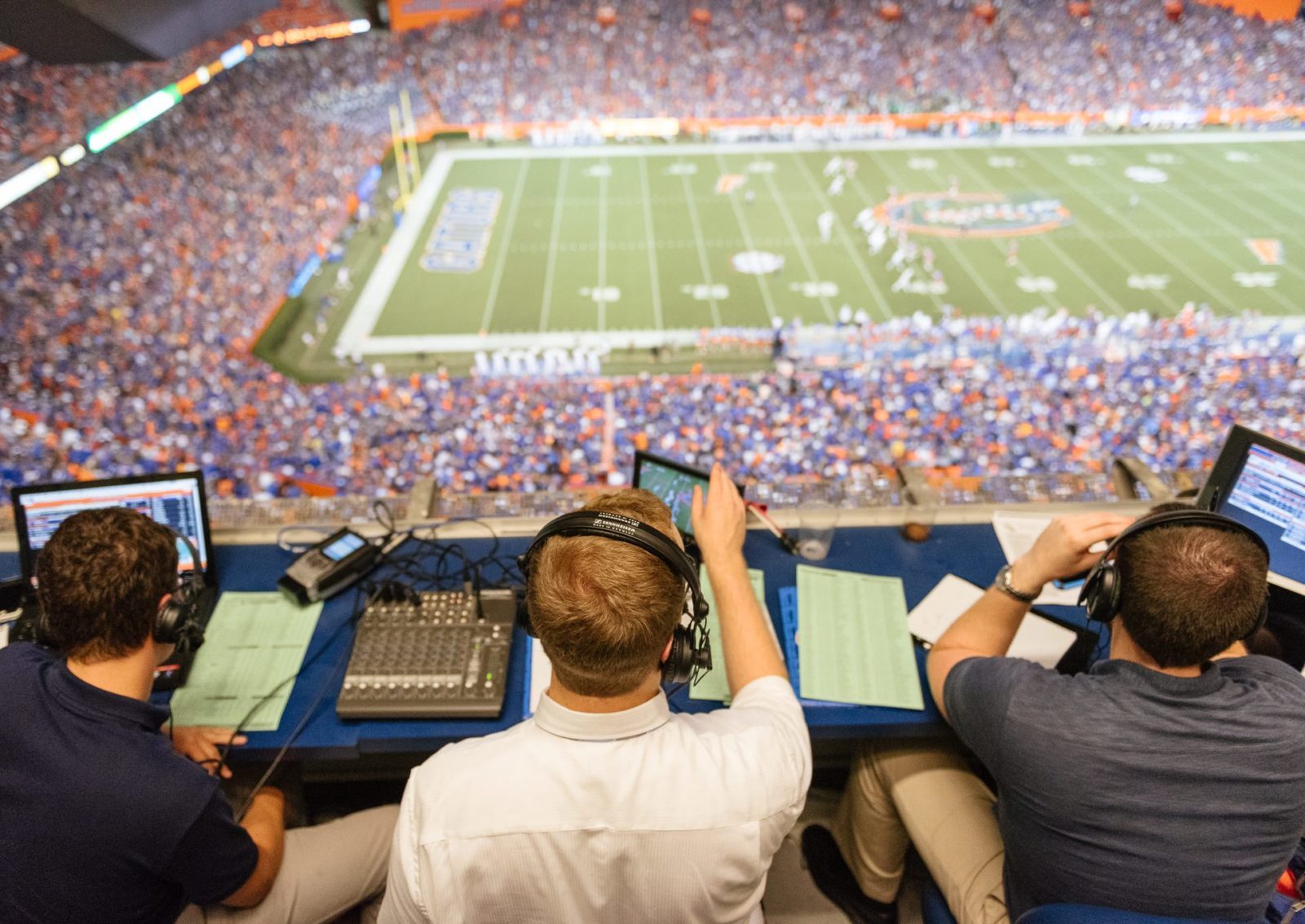
The future of sports media. Interview with ESEI sports professor and producer Aarthi Rajaraman
The future of sports media post-COVID-19: Interview with sports professor and producer Aarthi Rajaraman
Our new Sports Management Master’s Programme starts in October 2020 – and we’re excited! To give students a taste of what’s to come, we sat down with a faculty member Aarthi Rajaraman, who’ll be teaching sports media in the programme.
She told us a bit more about her background in sports media production, what students will learn in her upcoming course, and how she pictures the sports media industry post-COVID-19.
From San Francisco to Barcelona
Aarthi discovered her love for sports at a young age; she played competitive tennis while growing up in the San Francisco Bay Area and went to college on a tennis scholarship. She also had an interest in television and media, so she did several internships at sports events and in TV production.
When Aarthi graduated from college, she moved to New York to work for HBO Sports and simultaneously complete her Master’s degree. In 2001, she moved to Los Angeles to work at Tennis Channel as a producer. Then, nearly 4 years later, Aarthi moved across the globe to Barcelona and became a freelance producer. She’s worked with outlets such as ESPN and CNN, and has also worked on contract for CBS’s 60 minutes. She’s reported on a range of topics – including sports, culture and politics.
In addition to working as a producer, Aarthi has also taught for 12 years. She’s taught courses on sports business, sports marketing, broadcasting and media at several schools in Barcelona. Now, we’re thrilled to have her joining us at ESEI in October.
Aarthi’s sports media course at ESEI
In Aarthi’s class, students will learn about the media’s impact on sports over the last 40 years. They’ll explore the evolution of the industry, touching on topics like PR, crisis management, social media, content streaming services (OTTs), TV rights, and more.
It’ll also tackle subjects that are bound to spark some interesting discussions. Take college sports, for example. “College sports is a non-profit institution, yet they make billions of dollars in revenue from basketball and football. Even though college athletes are considered amateurs and they don’t get paid, some college sports TV deals are worth billions of dollars. So what’s the impact of that? Is it correct or not? That’s something that we’ll discuss in class,” Aarthi said.
Visits to Barça and Euroleague Basketball are an integral part of Aarthi’s teaching. While in-person visits to sports clubs may be off the table this year, Aarthi is planning to organise online chats with representatives of these organisations so students can gain some first-hand insight.
As a main project, students will be asked to put together a bid for a large sporting event.

Sports media after COVID-19
The COVID-19 pandemic has impacted every industry, and sports is no exception. The social distancing and safety measures introduced to combat the spread of the virus led to the postponing of the Tokyo 2020 Olympics and Euro 2020, two of the world’s largest sporting events. These changes will have a trickle-down effect on the entire industry.
“The Olympics are some of the most valuable rights in sports TV. So what’s the impact of postponing Tokyo 2020? We’ll talk about real-life scenarios like that,” Aarthi said.
Aarthi believes that with the development of a vaccine, sports events could be back on track by next year – which would mean that 2021 is going to be a great year for live sports. In the meantime, it will be interesting to see how the new sports media trends born during the pandemic start to evolve.
“The crisis has been really good for esports. You could participate in them while socially distancing and interacting with others on a screen. The user base of platforms like Twitch has skyrocketed, and they’ve started getting involved in lots of things other than gaming, like streaming concerts. In the future, we’re definitely going to see a virtual reality/online interaction component to sports,” said Aarthi.
But, she said, people still want to watch sports – they crave entertainment and the sense of community that comes with rooting for a favourite team. So while there may be changes to how people watch sports, the demand is still there.“I don’t think the fandom is gonna go down, I just think it’s going to evolve in terms of events and the viewing model,” said Aarthi.
The crisis may also create opportunities for those looking to start a career in sports media.
There’s already a lot of demand for young professionals proficient in social media, a crucial component of sports media today. This will only grow as athletes, clubs and leagues work to stay connected with their audience in times of social distancing and travel restrictions.
“If you’re an international student who speaks multiple languages and you have a love for sports, I think your opportunities are limitless,” said Aarthi.
If you’d like to study Sports Management in Barcelona, one of Europe’s biggest international sports hubs, check out our Master’s in Sports Management programme!



